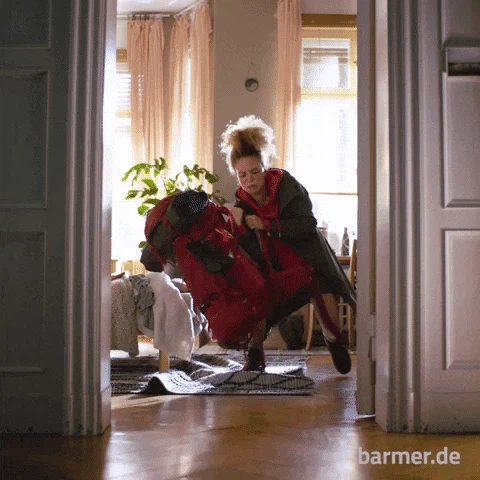How To Have A Dreamy European Summer Vacation On A Budget
Ah, summer in Europe. Slow mornings with a pastry and an espresso, afternoons spent in vibrant markets, and evenings relaxing on breathtaking coastlines with an Aperol Spritz in hand. But those picture-perfect moments can come with a hefty price tag, especially during peak summer travel season.

With a little savvy planning, you can have a dreamy European summer vacation without breaking the bank. Here are six tips to save money when planning and during your trip abroad.
Travel to Less Popular Cities
The only thing that can disrupt the pure bliss of summer in Europe is the threat of heaving streets, packed bars, and overbooked restaurants, all with an outrageous price tag – an unfortunate reality that is all too common in the continent’s most popular destinations in the summer.
While we don't want you to skip out on these spots, it's less expensive and less crowded to travel to lesser-known holiday spots during the peak summer travel months. There is a growing social media trend for traveling to alternative destinations – #dupe or travel dupe Instagram and TikTok pages highlight the growing interest in traveling to similar but less expensive and less crowded holiday destinations.
You can find the same European charm and cultural experiences in cities like:
Valencia, Spain: Dupe for Barcelona with stunning beaches and plenty of opportunity to indulge in a traditional paella and glass of wine overlooking the Mediterranean Sea. Plus, Valencia is near many castles, leaving room for day trips from the city.
Mostar, Bosnia, and Herzegovina: A near twin to a Croatian summer and still on the Dalmatian coast, Mostar has it all: coastline, storybook houses, mountain hikes, and vineyards to explore on your European summer.
Albanian Riviera: Dupe for the Amalfi Coast, the Albanian Riviera offers stunning beaches, turquoise waters, and charming coastal towns at a fraction of the price. The Albanian Riviera is also a great option for foodies with fresh seafood and delicious local cuisine.
Rotterdam, Netherlands: Amsterdam’s cool little sister has molded itself into a hub for art and culture, all at a fraction of the cost of going to Amsterdam.
There are plenty more #Dupes for your summer European vacation. Figure out what you want from your vacation – beaches, castles, nightlife, museums, a specific place – and search for similar cities using “dupe for ___” or “similar cities to ___.”
Book Your Flight and Hotel Right Now
As the peak summer travel season ramps up, more people and business travelers will snag airline seats and hotel rooms, making them a hot (and expensive) commodity.
Score the best deals on flights and accommodation by booking well in advance, especially during peak summer months. Consider tools like Google Flights or the Hopper app to track price fluctuations and find the cheapest options.
Pro-Tip: Consider flying into the cheapest airport in Europe from your home city in the U.S. Then, once you are in Europe, take a much cheaper, shorter haul flight on budget airlines like Ryanair for significant savings, but be mindful of potential baggage fees. Book this flight at the same time you book your flight to Europe to avoid higher airline fees.
Pack Light
By packing light, you can take advantage of cheap airline fares while avoiding baggage fees. Light packing also forces you to focus on experiences and not shopping because you simply don’t have enough baggage space.

Consider investing in and packing a capsule wardrobe. Think versatile neutrals and mix-and-match. Pack a few high-quality staples like comfortable jeans, a skirt, a couple of tops, and a versatile jacket. These can be endlessly combined to create an array of daytime, evening, and travel-ready looks.
Don’t pack anything you can buy in your destination country. Think of items like toothpaste, lotion, shampoo – you get the idea. It’s often cheaper to buy it there, plus, you save a lot of suitcase space and weight by not packing these items.
Find Free Activities
Europe has a wealth of free activities. Many museums offer free admission on specific days (like the Vatican Museums on the last Sunday of the month) or discounts for students and young adults. Once you decide on your destination, look up museums you would like to visit and see if and when they offer discounts or free admission.
Download apps like "Rick Steves Audio Europe," which offers free self-guided walking tours of major cities. Websites like Meetup often have free or discounted tours led by locals, offering a more personalized experience. If you opt to stay at a hostel, hostels usually offer free or discount group activities.

Consider looking up nearby trails and explore the stunning scenery on a free hike. National parks often have designated trails for all skill levels, offering breathtaking views and a chance to connect with nature. Soak up the sun on a beautiful beach – Europe boasts countless free public beaches where you can relax, swim, and soak up the European summer vibes.
Eat Like a Local (on a Budget)
Opt for grocery shopping and cook at your hostel or Airbnb. Stock up on fresh produce, local cheeses, and bread from local markets for an authentic experience. Not only is it cheaper than eating out every meal, but it's a fantastic way to immerse yourself in the local culture by trying regional ingredients and cooking up delicious meals. Many hostels and budget-friendly apartments have shared kitchens, perfect for putting together simple yet authentic meals.

Take advantage of free breakfast. Many hostels and budget hotels offer a complimentary continental breakfast, which is a great way to save money on your morning meal. This typically includes bread, pastries, fruit, yogurt, and coffee or tea – a light yet satisfying way to start your day.
Lunch is often the cheapest meal of the day in Europe, so consider making lunch your biggest meal each day. Look out for daily specials offered by cafes and restaurants. Many places offer "plat du jour" (dish of the day) at a discounted price, featuring local ingredients.
Manage Your Money
When you’re looking to pinch pennies, the last place you want to spend cash is on fees to get local currency. The best way to save on conversion fees is to use a credit card with no exchange fee. Many restaurants and shops in Europe take credit, so it's an easy way to avoid exchange rate fees. Plus, many credit cards with no exchange fee have travel benefits, like points available to use for future trips.

It’s still smart to carry cash on you. Bring a mix of U.S. dollars and euros. If your bank offers free currency exchange, get euros before you fly to Europe. If not, pull euros out of an ATM when you land at your destination. Don’t use a currency converter; they have high fees and exchange rates, so you'll end up spending a lot of money. Instead, use an ATM once you’re in the city. Be sure to research if there are any caps in your destination country on how much you can pull out of an ATM.
Closing Thoughts
Smart budgeting doesn't have to mean a bland trip or sacrificing your European summer. Sometimes, the less you spend, the more you can immerse yourself in the local culture. Hanging on the beach on the Albanian Coast, whipping up a pasta dish with authentic Italian ingredients, or hiking up the Alps aren’t just tricks of the frugal traveler – they’re stuff dream vacations are made of.
Support our cause and help women reclaim their femininity by subscribing today.